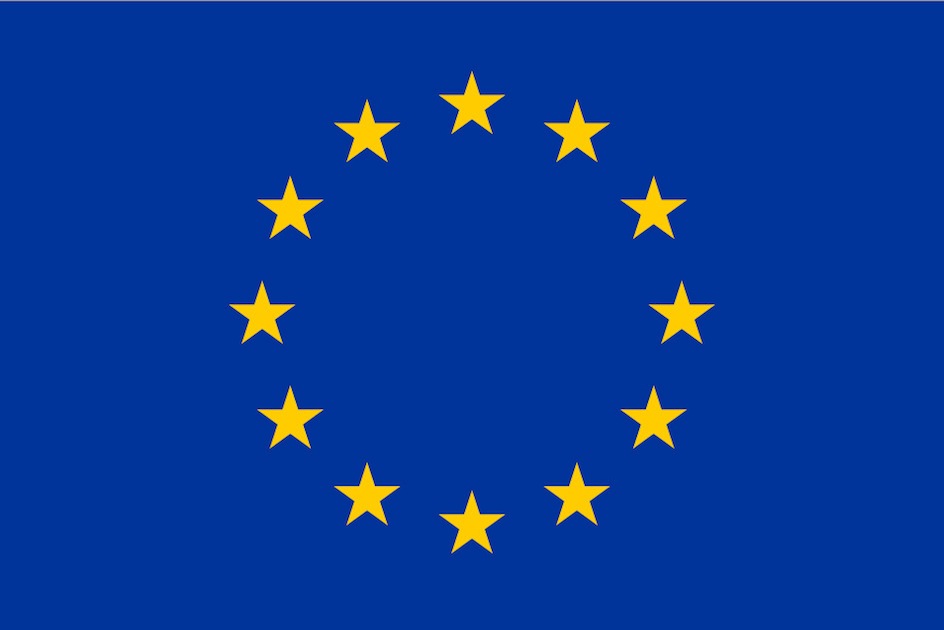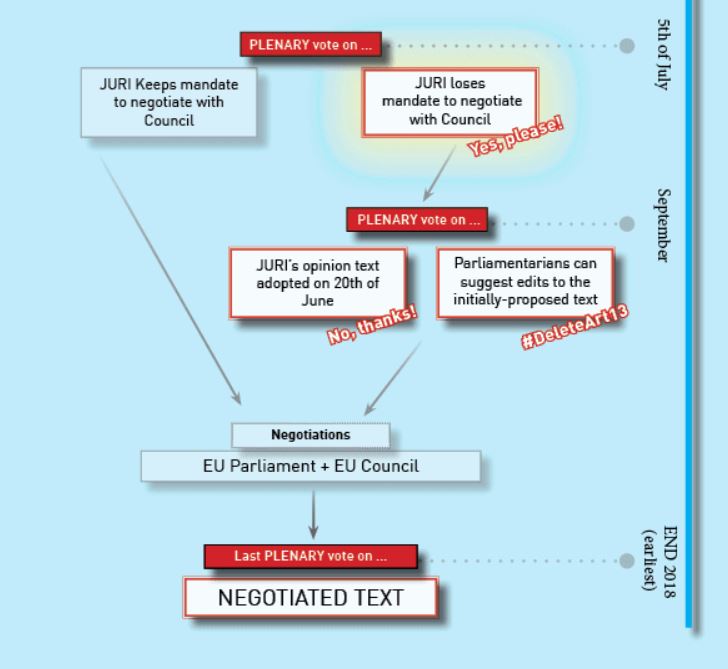EU Parliament Temporarily Rejects Controversial Copyright Law Proposal
Following increased activism and protests from EU citizens, politicians, and websites, the European Parliament (EP) has temporarily rejected the copyright law proposal that intended to implement the “link tax” and “upload filters” nicknamed “censorship machines” by activists. For now, the draft law has been sent back to the drawing board, but a new vote by the EP is coming between September 10-13.
EP Rejects Link Tax/Copyright Machines
The reason the EP rejected the law was primarily because of Articles 11 and 13, which would implement a link (or excerpt/snippet) tax and upload filters for copyrighted content. A total of 318 EP members voted against the proposal, 278 voted for it, and 31 abstained.
The link tax would make any publisher pay for referring to another article, even if that means sending traffic to the original source. As it has already happened in Spain and Germany, publishers and news platforms such as Google and Facebook are likely to stop referring to anyone else instead of paying for that link tax.
Not only would that be cheaper, but it would also drastically decrease their legal liabilities, just in case they omit registering certain links or snippets and paying for them.
The copyright machines, as activists called the upload filters for copyrighted content, would also drastically increase the legal liabilities of all content platforms operating in the European Union (EU).
As we can see time and time again, even Google and Facebook, which have among the most advanced moderation filters in the world, still struggle to separate copyrighted content from non-copyrighted content or copyrighted content that can be used under the fair use exception. Critics of the law say it would be virtually impossible for smaller companies to abide by this law.
The passing of GDPR, which was a much tamer regulation in comparison and was highly supported by internet users but not so much by advertising companies, has shown that foreign companies are already on the edge about continuing to support EU citizens on their sites.
Get Tom's Hardware's best news and in-depth reviews, straight to your inbox.
If the new EU copyright law passed in its current form, it may have pushed many foreign companies over the edge and completely block EU citizens from uploading content on their platforms as well as stop all references to EU media.
The original proposal of this reform also mandated that any user that links to a news story must pay the link tax, too, but that clause was removed in the recent review by the Legal Affairs committee.
Round 2 On September 10-13
The new copyright proposal hasn’t been rejected for good. It has merely been sent back for changes. Executive Director at Open Rights Group said in a statement:
"The EU Parliament has recognised that machine censorship of copyright material is not an easy and simple fix. They’ve heard the massive opposition, including Internet blackouts and 750,000 people petitioning them against these proposals.
“Everyone across Europe who wants this fixed will have to work hard to make sure that Parliament comes up with a sensible way forward by September.
“We congratulate our members for their hard work, and Julia Reda, Catherine Stihler, EDRi and others who have led the fight in Europe to stop these dreadful proposals.”
Between September 10-13, the EP will meet again to vote on the final changes of the law, which activists hope would no longer include Articles 11 and 13. Those who wrote the copyright draft law are now in a tough spot, because if they don’t compromise on deleting Articles 11 and 13, they may risk having the law on which they’ve been working for the past few years be completely rejected by the EP in the fall.
The campaigners against the EU copyright law say they will not only continue the fight but ramp it up before the September EP vote, to ensure that either the worst parts of the bill are removed, or that the whole law fails to pass.
Lucian Armasu is a Contributing Writer for Tom's Hardware US. He covers software news and the issues surrounding privacy and security.
-
techy1966 I don't live there but when I first heard about this I was like OMG and WTF are they thinking. At some point they will get a revised version passed that will just have more clever wording but in the end probably mean the same thing. Now my fear is if they do get something like this passed it is only a matter of time beofre other parts of the world start doing the same thing and then we are all pretty much screwed.Reply

